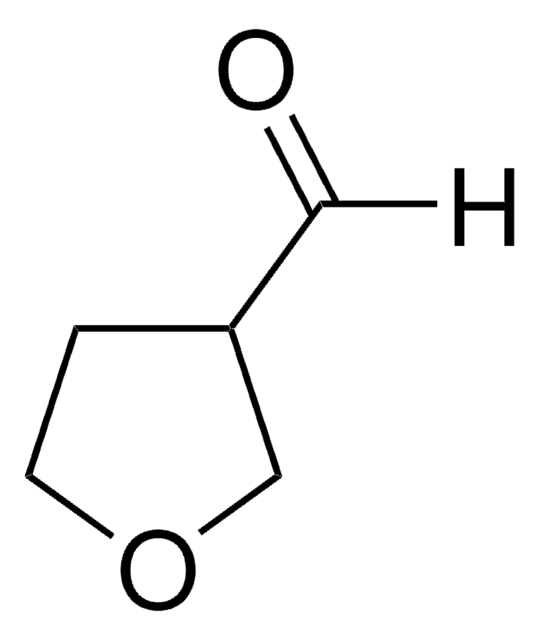1.08101
Tetrahydrofuran
≥99.9% (GC), suitable for HPLC, LiChrosolv®
Synonym(s):
THF, Tetramethylene oxide, Oxolane, Butylene oxide, Butylene oxide, Oxolane, Tetramethylene oxide
About This Item
143 mmHg ( 20 °C)
Recommended Products
Product Name
Tetrahydrofuran, for liquid chromatography LiChrosolv®
vapor density
2.5 (vs air)
Quality Level
vapor pressure
114 mmHg ( 15 °C)
143 mmHg ( 20 °C)
description
isocratic
product line
LiChrosolv®
assay
≥99.9% (GC)
form
liquid
autoignition temp.
610 °F
expl. lim.
1.8-11.8 %
Looking for similar products? Visit Product Comparison Guide
Related Categories
General description
Application
Features and Benefits
- packaged in glass bottles
- offers high resolution, sensitivity and optimized peak baseline separation
Preparation Note
Analysis Note
Identity (IR): conforms
Evaporation residue: ≤ 1.0 mg/l
Water: ≤ 0.02 %
Acidity: ≤ 0.0002 meq/g
Alkalinity: ≤ 0.0002 meq/g
Peroxide: ≤ 0.02 %
Transmission (at 218 nm): ≥ 30 %
Transmission (at 230 nm): ≥ 35 %
Transmission (at 250 nm): ≥ 65 %
Transmission (at 280 nm): ≥ 95 %
Filtred by 0.2µm filter
Other Notes
Legal Information
signalword
Danger
Hazard Classifications
Acute Tox. 4 Oral - Carc. 2 - Eye Irrit. 2 - Flam. Liq. 2 - STOT SE 3
target_organs
Central nervous system, Respiratory system
supp_hazards
Storage Class
3 - Flammable liquids
wgk_germany
WGK 1
flash_point_f
-6.2 °F - closed cup
flash_point_c
-21.2 °C - closed cup
Certificates of Analysis (COA)
Search for Certificates of Analysis (COA) by entering the products Lot/Batch Number. Lot and Batch Numbers can be found on a product’s label following the words ‘Lot’ or ‘Batch’.
Already Own This Product?
Find documentation for the products that you have recently purchased in the Document Library.
Customers Also Viewed
Articles
UHPLC separation of Vitamin D Metabolites using Supel™ Carbon LC column ensures excellent peak shape and sensitivity.
Thin-layer chromatography method for detecting organic impurities in valacyclovir, an antiviral medication, following USP monograph guidelines.
Protocols
Catalyst screening kits, KitAlysis™, and TLC-MS analysis enable high-throughput synthesis and analysis for efficient reactions.
Our team of scientists has experience in all areas of research including Life Science, Material Science, Chemical Synthesis, Chromatography, Analytical and many others.
Contact Technical Service








